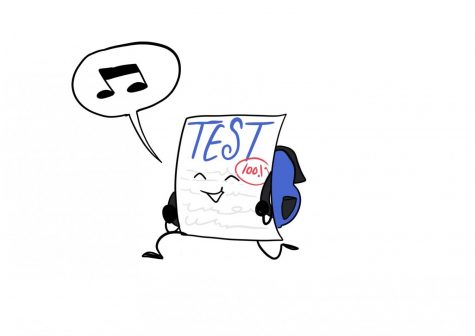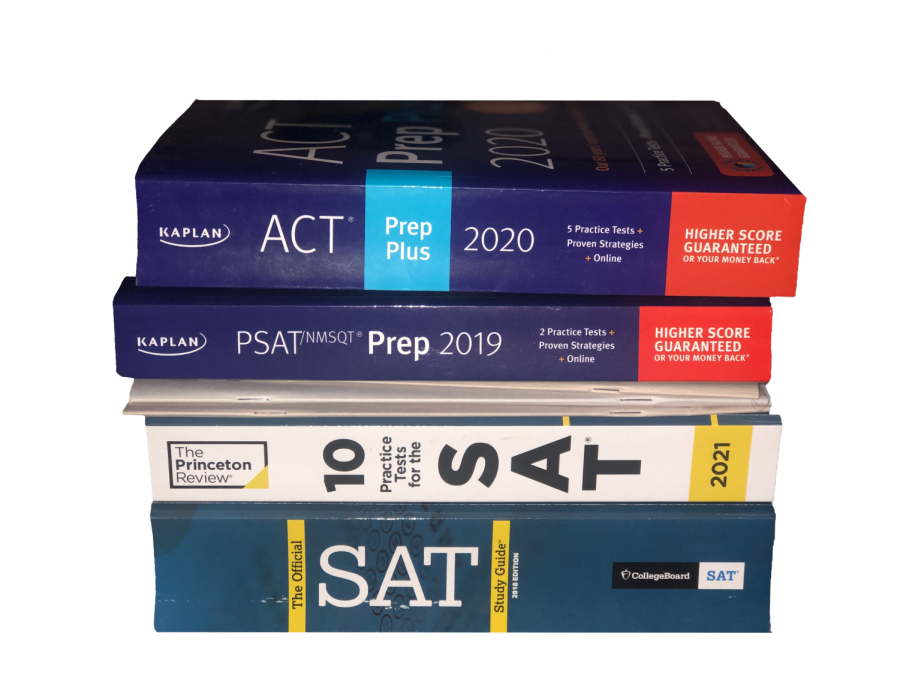Opinion: Why We Need Standardized Tests
I was in first grade when I took my first standardized test.
The exam was the ERBs (Educational Records Bureau), a test that is, according to the official website, designed to “strengthen [students’] education by driving targeted instruction, spotlighting strengths, and identifying areas for improvement.”
We had to take the ERBs every year, but because this was my first time, I was undoubtedly nervous. I remember while we were testing, the room was dead silent, except for the sound of pencils moving across test booklets. For the most part, we all stayed quiet, but the tension in the room had increasingly piqued my anxiety.
Because this same test anxiety and constant stress from the pandemic can collectively become too great, many colleges have recently opted for a “test-optional” policy regarding admission. According to the College Board blog, test-optional schools “allow all or some applicants to decide whether to submit SAT or ACT scores as part of their application.” In other words, a student can submit scores to benefit their resume, but it is not required.
While many schools are implementing this novel policy, many schools here in Florida, such as UF and FSU, are still requiring standardized tests amidst COVID-19. UF’s Board of Governors, in particular, cites worry of students not taking the tests at all as an obstruction for going test-optional.
This would limit their options in terms of scholarships and financial aid; specifically in Florida, because taking a standardized test is a requirement for Bright Futures, a scholarship program for Florida high school students, many students may not be eligible if they choose not to take these tests.
Because of the ubiquitous uncertainty of whether to go test-optional or not, no one knows if colleges who are for this policy will choose to extend it to subsequent school years.
From the perspective of a high school junior, not yet applying to college but well aware of the admissions system and structure, I believe that standardized tests are absolutely essential to the college admissions system, and they should be reinstated by next school year.

No, Your Scores Aren’t Inflated
A study from the Thomas B. Fordham Institute depicts GPA as a common element of college applications that is often exaggerated. Although admissions officers look at GPA to get a general idea of a student’s academic skill, and many colleges recalculate GPA to avoid this inflation, the study displays increased grade inflation in affluent schools, where less privileged schools are at an academic disadvantage.
Additionally, more statistics from the College Board reveal that suburban schools are more likely to inflate their student’s grades, much like wealthy schools, now putting urban schools’ students at a disadvantage.
In contrast, every standardized test is naturally objective. As popular assessments such as the SAT and ACT are run by national organizations, there is no inclination for scores to be exaggerated by schools. In other words, the tests (except for essay portions) are graded by machines, not humans, and therefore there is no room for qualitative judgment or possible grade distortion.
With GPA as an inconsistent measure for college admission, the standardized test proposes a unified method of testing students across the nation, providing certainty of scores in a time of uncertainty.
Preparing for the Future
Frankly, standardized testing is a practice that is not going away anytime soon. To be more specific, many occupations, such as those in healthcare or business, will not stop requiring an assessment for certification in their fields. So, it is important to start taking standardized tests early to practice for harder exams in the future.
Exams like these are usually requirements to apply to graduate school or post-graduate education. For instance, students who are applying to law schools are required to take the LSAT (Law School Admission Test), a notoriously difficult test that requires a lot of study time and preparation. Pre-med students face a similar challenge with the MCAT (Medical College Admission Test).
In order to be prepared for these impending challenges, taking standardized tests in high school and sometimes earlier offers a successful method of teaching students how to grasp concepts and gain study habits that will be necessary in the future.
Additionally, standardized tests can be a remedial resource, helping students decide if they are ready to take the next step in their academic journeys. The MCAT and LSAT are examples of this, as they can act as a “benchmark” for students to determine if they are ready for a higher level of education. If these students score poorly, they will know how to improve when they take the test again; if they score well, they know they can handle the subject material and will be ready for further education.
It’s hard to imagine going to school and not taking tests, as it has become a standard component of high school and college education. Put in more concise terms, tests exist for a reason. As an objective tool and preparation for the future, standardized tests are ultimately a key factor in every student’s academic life, and therefore should be included in the college admissions process.
Final Thoughts
When the results of my first-grade ERBs came out months later, I wasn’t satisfied with my scores. Although I was only six or seven years old, I beat myself up for not doing better on my weaker sections, such as vocabulary and comprehension, knowing I was one pencil stroke away from a better result.
However, ten years later, I realize that because of these standardized tests, I am motivated to improve myself academically; my ERB scores helped me understand my weaknesses, motivated me to grab my book and start studying, and reminded me that mistakes only tell you where and how to improve.
I realize that although standardized tests can be stressful, they end up preparing me for the near future, like how the ERBs prepared me for middle school assessments and later high school standardized tests.
But most importantly, just like how the ERBs “spotlight strengths” and “identify areas of improvement,” I realize that without these standardized tests, I wouldn’t know that I was weak in vocabulary and strong in math. I wouldn’t know that sometimes I read too fast, skipping lines, miscomprehending the passage entirely.
I wouldn’t know how to take a test and get a good score when it really mattered.



